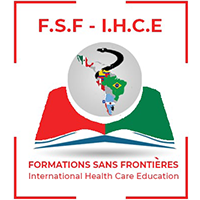Up to 18% of deportees present common mental disorders at the moment of deportation. Since they are separated from their social support networks, they have social needs too. During the short time they spend at the border cities (ranging from 3 to 72 hours), deportees are targets for organized crime, which creates an access barrier to health services offered in Reynosa, Matamoros and Nuevo Laredo offer by some NGO`s.
Furthermore, there is a lack of cooperation between migration and health agencies, making it difficult for returnees to get social and health care. Despite the fact that Mexico has sufficient regulations and protocols for the care of victims of violence (including SV), they are rarely used in practice due to a lack of capacity and the reluctance of frontline health care providers who are afraid of reprisals/retaliation and legal ramifications. As a result, when it comes to sexual assault and its mental health effects, most cases of abuse go unrecorded and unattended. Furthermore, the vast majority of victims do not pursue legal action.

There is the possibility for a project that addresses the mental health care requirements of victims of violence and People on the Move by providing the necessary psychological training for volunteers to assist people at the appropriate time. To do so, we can work with a variety of stakeholders, including religious organizations (shelter providers), government migration institutions, and primary and secondary public health facilities to integrate mental health care and care for victims of violence (including SV) into primary health care facilities.
It is necessary to keep in mind that those on the move are more vulnerable to violence. They may be victims of direct violence, extortion, kidnappings, human trafficking, and other forms of organized crime. They face challenges in obtaining health and social assistance from the state. Non-governmental actors offer the majority of health care and social assistance for individuals on the road in Mexico (religious organizations, Mexican Red Cross, MSF).

High levels of violence have direct and time-sensitive humanitarian consequences for the population’s safety, access to healthcare, education, and psychosocial assistance. Illegal armed and criminal gangs that dominate territory or towns in Reynosa and Matamoros frequently limit access to vulnerable and at-risk populations (including host populations and individuals on the move).
Vertical programs provide psychological treatment to a variety of patients, but the government (MoH) or any other agency does not provide specific care to victims of violence (within the host population) or individuals on the move.
While residents of Reynosa have “normalized” violence, which has resulted in chronic mental health disorders such as depression, anxiety, and psychosomatic diseases, migrants are victims of single episodes of extreme violence (kidnappings, sexual violence, deportations, and so on), which have resulted in acute psychological disorders. The availability of health services in Reynosa has not kept pace with the city’s growing population, which has been settling in slums in the city’s periphery from the south east to the south west for the past ten years.
Finally, while it is allowed to conduct ToP in cases of sexual violence, threat to the woman’s life, and a fetus with defects that make life impossible, there is a gap in the service’s availability. Furthermore, ToP on demand is only available in Mexico City, posing an access challenge for women, particularly Women on the Move, who seek this service in Tamaulipas. The Primary Health Care network is in disarray and is unable to provide the level of care that the population requires. There is a lack of a reference and counter-reference system, as well as insufficient coordination between the first and second levels and knowledge gaps about the few resources available. Even when residents have access to medical treatment, mental health is lacking on all levels, especially for those who are on the move. Psychiatric treatment is basically non-existent. There is only one psychiatrist in the public sector who provides care as a social service, while the IMSS has only two psychiatrists.

Public insecurity has risen in recent years, with homicides, forced disappearances, extortion, and other forms of non-lethal violence on the rise. According to the UNHCR, violence and persecution, largely perpetrated by criminal gangs in the NTCA, continue to push residents to flee to Mexico. The primary reasons of forced displacement are projected to persist in 2018, resulting in an influx of persons escaping conflict in North Central America (NCA) to Mexico. Because of the presence of criminal groups along migratory routes, security threats are expected to evolve, and the rising cost of traveling north may continue to influence people’s decisions to stay in Mexico.
People on the move are in a vulnerable position, and the majority of beneficiaries reported experiencing some form of violence, either during or after the migration process. Extortions, forced recruitment into organized crime, sexual violence, threats, kidnappings, and physical violence are all typical challenges that people face. Protection services, essential food and potable water, basic shelter and housing, adequate clothing, and essential medical services (primarily in mental health) and sanitation are all in short supply. In addition, the conditions of pre-deportation detentions, as well as some shelters, are hazardous, and several patients have claimed being attacked or mistreated while in US custody. Finally, once the returnees arrive in Mexico, the authorities provide only little (INM, ITM) assistance.

